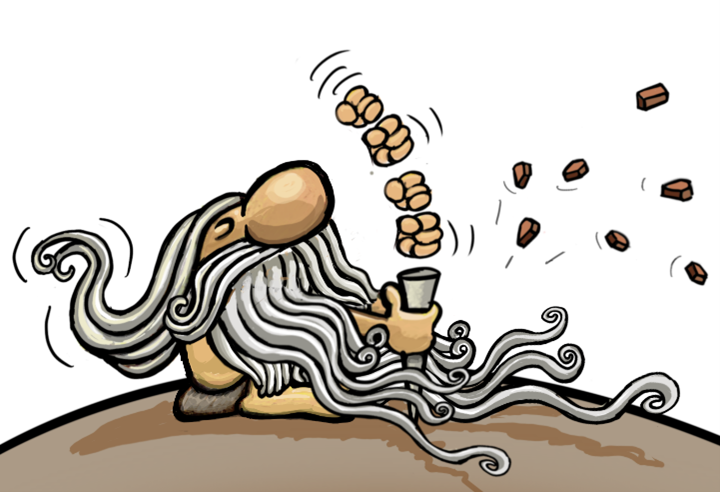Ergun Akleman on History of Science:Faults

HISTORY OF SCIENCE: FAULTS
Ergun Akleman
Professor, Visual Computing & Computational Media Section, SPVFA
Joint Professor, Department of Computer Science and Engineering, COE
Texas A&M University, College Station, Texas, USA
web: https://people.tamu.edu/~ergun/
emails: ergun.akleman@gmail.com, ergun.akleman@tamu.edu
Lombiek page: https://www.lambiek.net/artists/a/akleman_ergun.htm

The first observations of the physical material of the Earth dates back at least to ancient Greece to the 4th century BC. Theophrastus wrote a book on ``stones'. Aristotle observed that the Earth changes with time. These changes happen at such a slow rate that they cannot be observed during one person's lifetime [1]. During the Roman period, Pliny the Elder wrote on minerals and metals, and their practical uses. In 10th century, Persian geologist Abu al-Rayhan al-Biruni studied the geology of India and hypothesized that the subcontinent was once a sea [2]. Ibn Sina (Avicenna) provided explanations for the formation of mountains, the origin of earthquakes, and other topics central to modern geology, which provided an essential foundation for the later development of the science [3].
The word geology was first coined by Ulisse Aldrovandi in 17th Century. The word is derived from the Greek word "GE" meaning "earth" and "logos", meaning "speech". 18th century is considered starting of modern Geology and James Hutton is often viewed as the first modern geologist [4]. The first geological maps started to appear in 19th century. During the 20th century, there were many major discoveries in geology and geophysics such as the discoveries of the internal structure of the Earth and mechanism of overthrust faulting [5]
References
[1] Lewis, Eric. Alexander of Aprodisias: On Aristotle Meteorology 4. Bloomsbury Publishing, 2014.
[2] Bosworth, Clifford Edmund, and M. S. Asimov. "The Age of Achievement: AD 750 to the End of the Fifteenth Century: The Achievements: History of Civilizations of Central Asia." (2000).
[3] Al-Rawi, Munim M., and S. Al-Hassani. "The Contribution of Ibn Sina (Avicenna) to the development of Earth sciences." United Kingdom: FSTC Limited (2002).
[4] Bailey, E.B., 1949. James Hutton, founder of modern geology (1726–1797). Proceedings of the Royal Society of Edinburgh, Section B: Biological Sciences, 63(4), pp.357-368.
[5] Lowman Jr, Paul D. "Twelve key 20th-century discoveries in the geosciences." Journal of Geoscience Education 44, no. 5 (1996): 485-502.